Ronnie Moran: The 'barking dog' with the genuine inside knowledge of what made Liverpool so successful
Moran explained to Simon Hughes in 2013 why Liverpool were able to enjoy sustained success for so long and the reasons why he has taken many club secrets to the grave
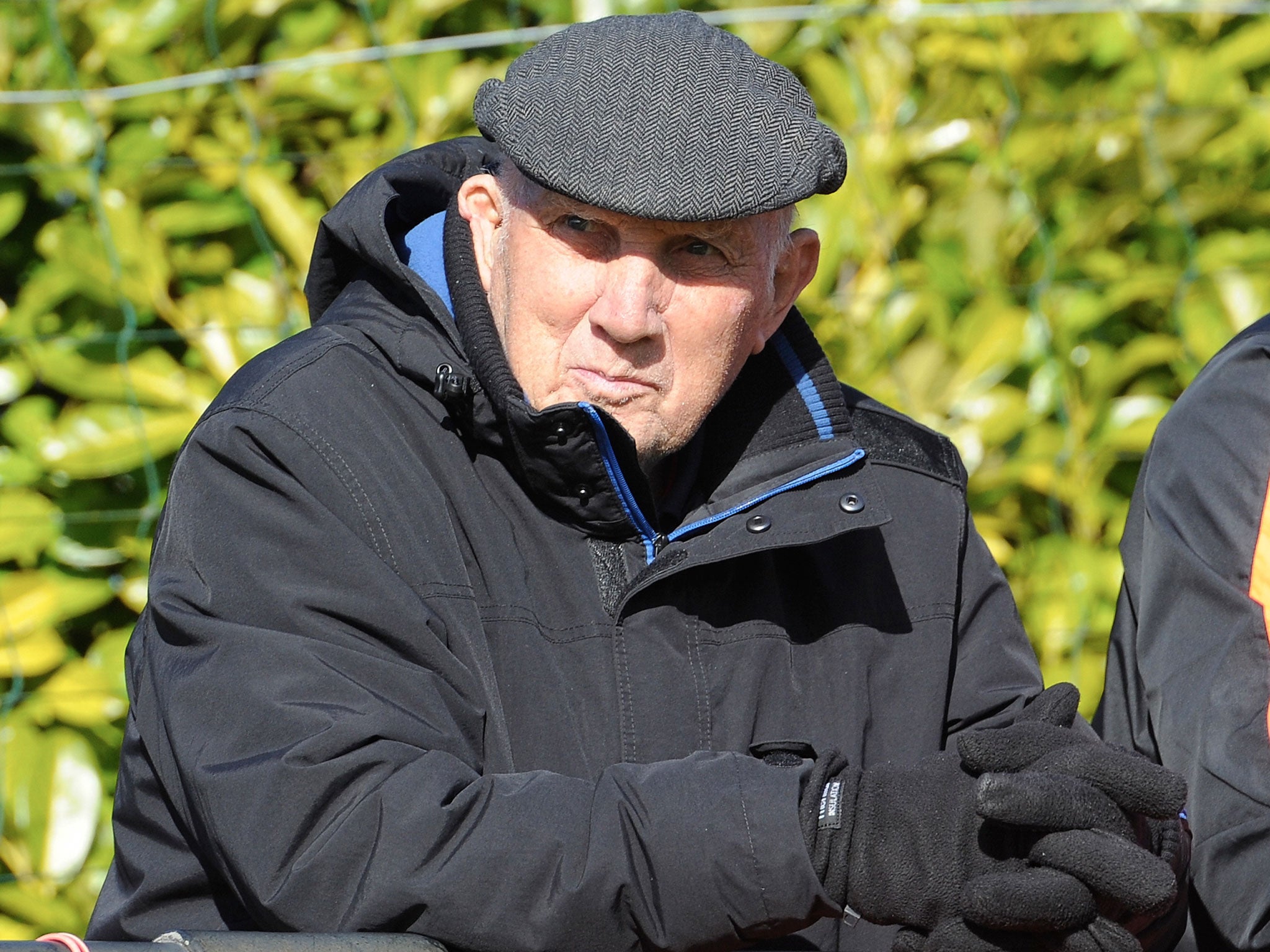
Your support helps us to tell the story
From reproductive rights to climate change to Big Tech, The Independent is on the ground when the story is developing. Whether it's investigating the financials of Elon Musk's pro-Trump PAC or producing our latest documentary, 'The A Word', which shines a light on the American women fighting for reproductive rights, we know how important it is to parse out the facts from the messaging.
At such a critical moment in US history, we need reporters on the ground. Your donation allows us to keep sending journalists to speak to both sides of the story.
The Independent is trusted by Americans across the entire political spectrum. And unlike many other quality news outlets, we choose not to lock Americans out of our reporting and analysis with paywalls. We believe quality journalism should be available to everyone, paid for by those who can afford it.
Your support makes all the difference.Ronnie Moran has separately been termed ‘barking dog’, a ‘Rottweiler’ and a ‘very angry man’. I found none of those descriptions accurate when I met the oldest living member of the famed Boot Room a few days ahead of his 79th birthday in the Liverpool suburb of Crosby.
Using a walking stick to manoeuvre his hulking body through the front door of a bungalow where he lived in a retirement complex, it is imaginable that, in his prime, Moran was not a man to be crossed. In his playing days, indeed, he was a fiercely competitive left-back and in an alternative life would surely have had the physique and tactical sporting mind to compete as an amateur boxer. Placing his paisley-patterned flat cap and heavy winter coat onto a wooden stand, he invited me into what he called ‘the trophy room’ and presented me with one of many photographs from a magnolia-coloured wall. It included his four closest friends in football: Bill Shankly, Bob Paisley, Joe Fagan and Reuben Bennett.
“Every morning, I wake up and sit looking at that crowd,” he said, lightly grinning and pointing with thickset fingers. “I remind myself that I’m the only one still here. It’s very sad when you think that all that knowledge has been lost. But I also feel very fortunate to have been a part of it. They were a good bunch. I miss them.”
I decided to interview Ronnie because aside from Roy Evans he was the only person still alive with genuine inside knowledge that could contribute towards explaining why the club sustained its culture of success for so long. After just a few minutes speaking to Moran, you could quickly sense the intrinsic qualities in an individual that, when placed in a collective, engineered Liverpool’s dominance of the English game. His loyalty to those with whom he shared the Boot Room was admirable. His uncompromising attitude towards commitment was also evident. “Football is about character and showing balls, see,” he said, directing a stern digit in my direction. “The minimum you can ask is to give your best. With that and with the right people around you, you’ve got a chance.”
Moran remembered the Second World War. He was five when it began and eleven when it finished. Life was harsh. “My father worked as a binman, and he transported rubbish around the borough by horse and cart. He tried hard, you know. I valued his effort. Whenever he came down our road, I’d go out and give him a hand. When the war started, he helped the Home Front. It was his job to ring the town siren from a nearby station to alert the residents when the bombs started dropping. We’d hide under the stairs. It was a squeeze with a family of our size.”
He continued, retelling tales of his childhood using simple but effective language. I learned that he met his wife Joyce at school. They have been married for 55 years. Sadly, he is old enough to have lost a daughter and a son-in-law. They passed within 18 months of each another. And then came his interest in football. It began when his eldest sister’s husband took him to Goodison Park. “Football never bothered me in that way [in terms of rivalry]. As a kid, I wouldn’t say I had a preference. If anyone, Formby was my team because two of my brothers played for them as amateurs. One was a goalie and the other was a right-back. You’d only get 20–30 people watching. But you could hear everything that was being said. It made me realise from a very young age how important it was to not just communicate on the pitch but say the right things as well.”
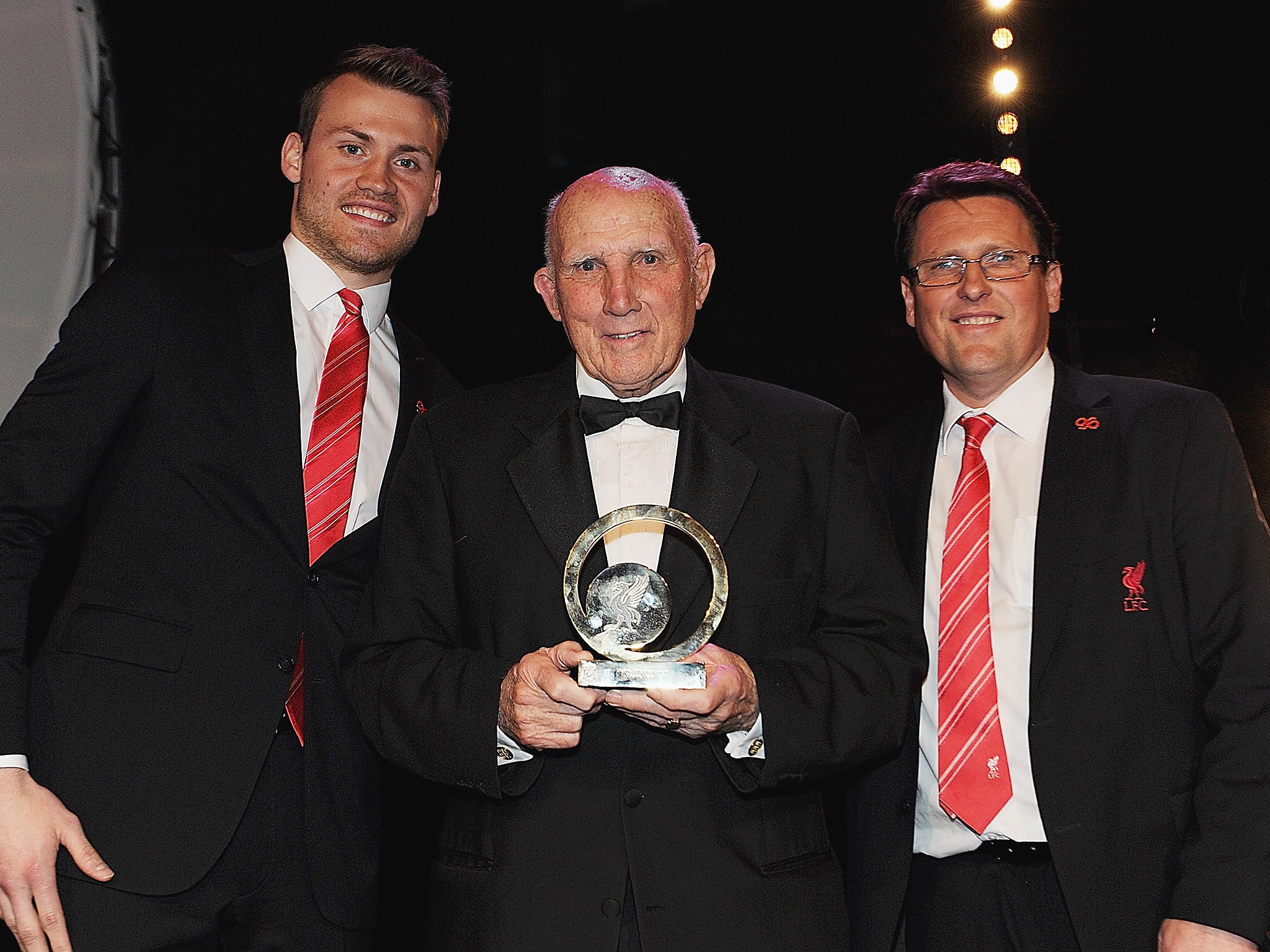
Moran grew up in an era when Billy Liddell and Dave Hickson were the undisputed heroes of Merseyside football. This was a time when abilities were not readily showcased to the masses. Supporters only knew of a genius if they watched live the matches. “Billy was the god and Dave wasn’t a bad player too,” Moran said. “I could see that from just a few games. But I have to be honest, I did not know much about the people that played football, because there was no TV and nowhere near as much coverage in the papers. I just knew how to play football.”
The path towards a professional career became clearer when Moran won a scholarship at Bootle Tech. He insisted it was the most crucial moment of his life. “It meant that I could play for Bootle Boys, and they were a bit better at the football than Crosby Boys.” The decision to move his schooling just a few miles down the Mersey River reflected Moran’s determination to become a footballer. It is common for children now to make the opposite journey in search of a supposedly better education in a more salubrious area. “I would have gone to the other end of the earth to become a footballer, but instead I just had to go to Bootle,’ Moran said, lightly laughing away. ‘School football was really competitive in my era. There was a real sense of pride in beating the districts around you. I got a fair amount of stick off friends in Crosby for playing for Bootle. So whenever we beat them, I made sure I gave it back to them.”
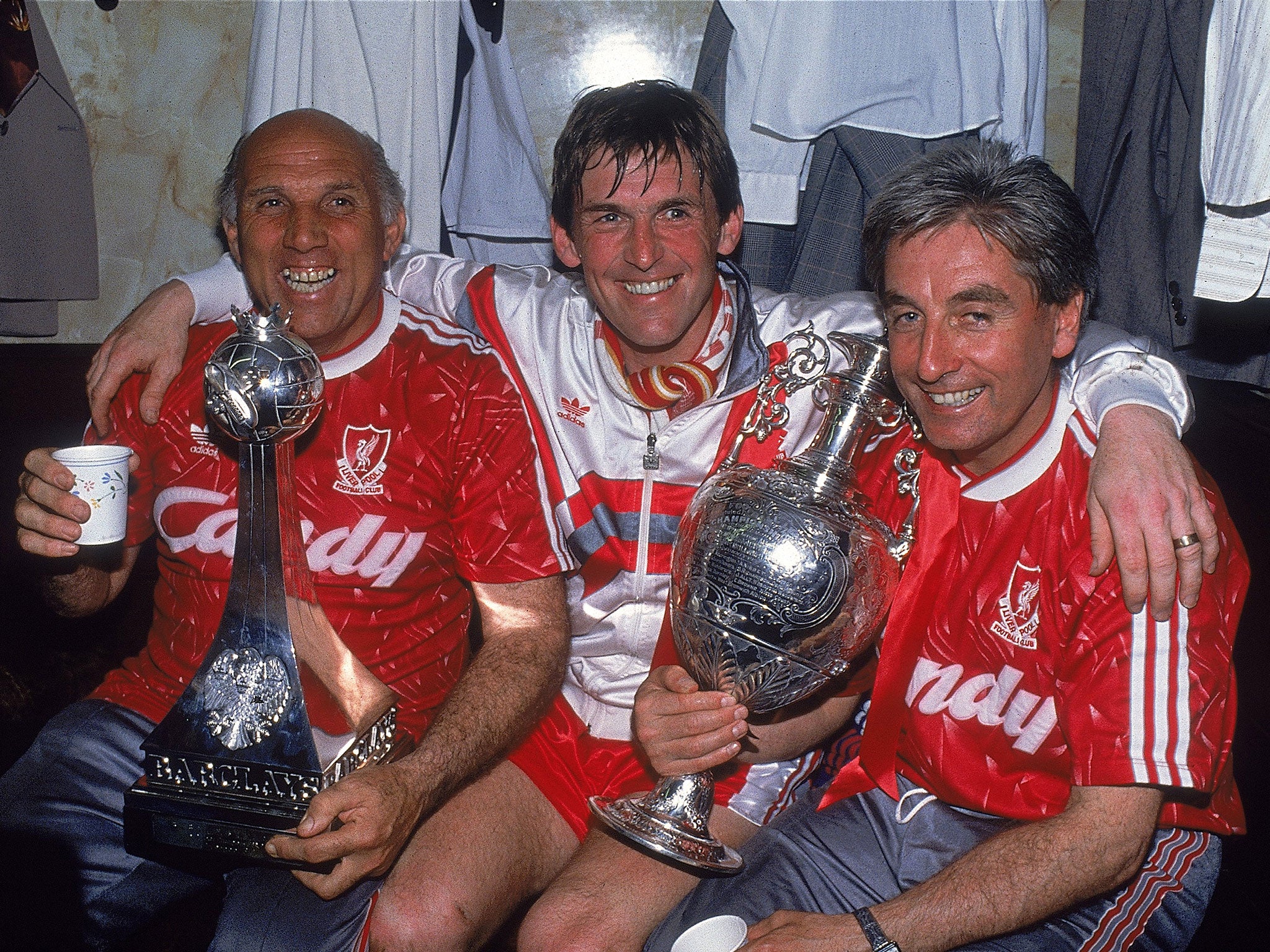
Everton and Liverpool scouts were always about, “spying”. Aged 15, Moran was preparing to leave school and take up a job as a labourer when one of his performances for Bootle prompted a firm offer. “A teacher took me to one side and told me that a man with a hat and a long coat wanted to speak to me. So I approached him and he said, ‘Everton want to sign you, son.’ I told him he was unlucky. ‘You’re seven days late, mate. I signed for Liverpool a week ago.’” Moran was impressed by the Liverpool manager, Don Welsh. “He was a big army bloke and into discipline. That suited me down to the ground. Within a few years, I did my national service, and I think that helped my football because it really hammered home how important it was to work hard and be focused. A lot of people my age didn’t like national service, but I enjoyed it.
“I was also lucky that the year I joined Liverpool, the club bought training pitches [now Melwood] from SFX [Saint Francis Xavier School]. It was good because it meant I had somewhere to practise properly.” Players would park their cars if they had them at Anfield and then travel to Melwood by minibus for daily sessions every day. That process only changed during pre-season, when the squad were tasked with running the three miles as part of their training. “Some cheated, though,” Moran remembered sharply. “I wasn’t one of them, because I was afraid of getting caught, but you’d get people that would park a few streets away from Anfield, pick their car up and then park out of sight from Melwood. I suppose you could say it was funny, but it benefited nobody in the long run. There are no shortcuts to success in football.”
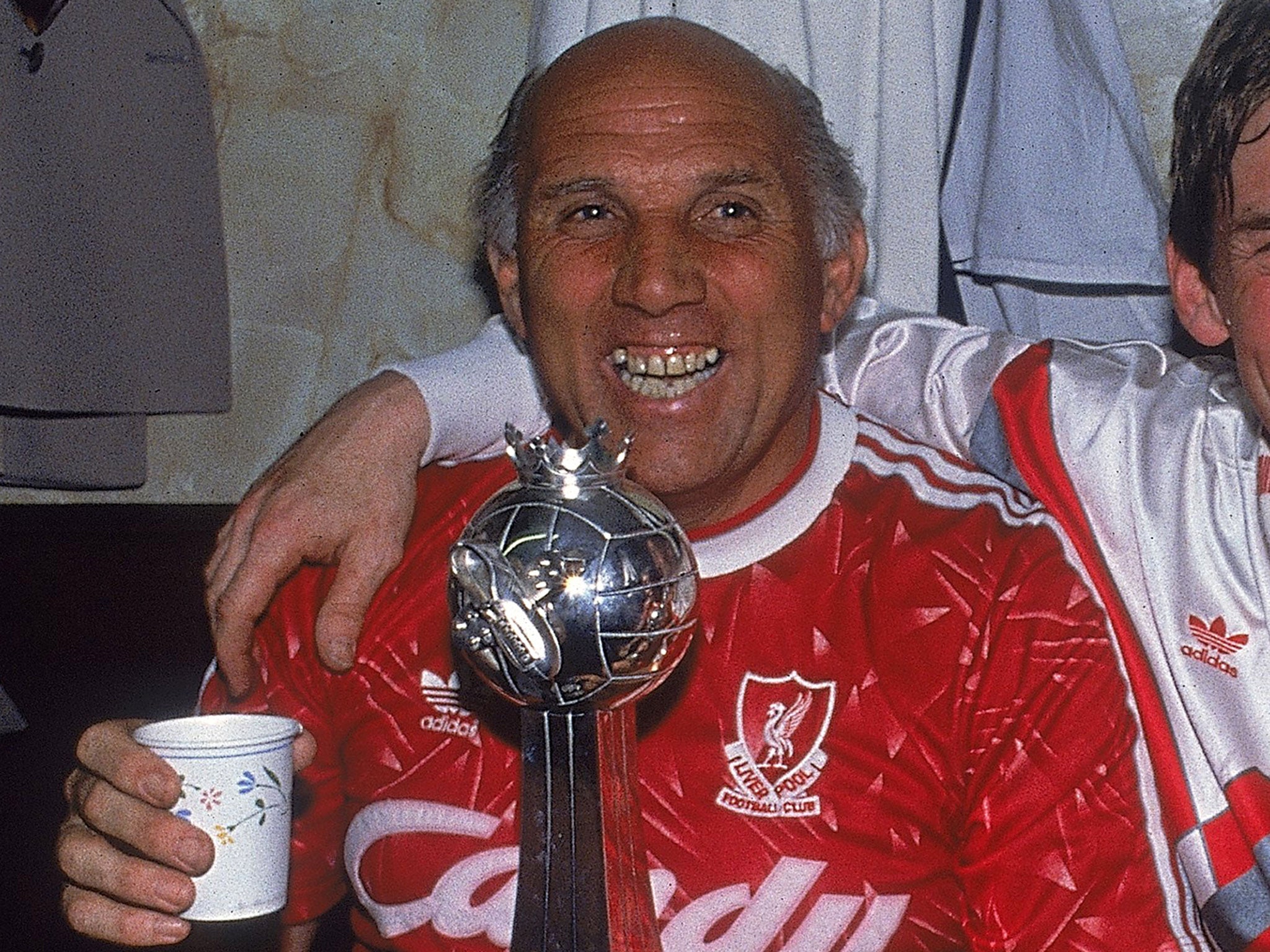
When Bill Shankly arrived as manager in 1959, attitudes towards training improved. In the seven years since Moran’s debut, Liverpool had languished in the Second Division for five of them, with limited sign of progression. “Bill saved the club,” Moran beamed. “After the first day of training under him, I knew he was going to be a success. He insisted on playing in the five-a-sides. His enthusiasm infected everybody else. He would never finish on the losing team. At first, the players thought it was funny, because he got so wound up. But after a while, we desperately wanted to beat him. These games ended up as Mexican stand-offs, because nobody liked losing. Shanks would go round kicking the young lads. He’d do anything to win. It rubbed off on everyone.” Shankly surrounded himself with a staff that shared a similar mentality towards defeat. Paisley, Bennett, Fagan and eventually Moran himself would form the staff team. It instilled a simple culture of winning football matches. “You saw Reuben – he was a goalkeeper and in his ’50s. But he’d take part in the pre-season and never finish outside the top ten in the sprints. Joe was that way as well. I was always a bit porky, but I could shift as well, and Bill recognised that. He knew my attitude was right. He knew I wouldn’t accept losing easily.”
A day before I met Moran, Liverpool were beaten 2–0 at home by West Bromwich Albion. He assessed that a modern problem of Liverpool’s had been acceptance. “You hear some people argue that the team played well. If it was me – Christ, son, I’d be crying my eyes out. I know there are so many matches these days, you can’t afford to get too down, but it doesn’t seem to hurt some as much as it should.”
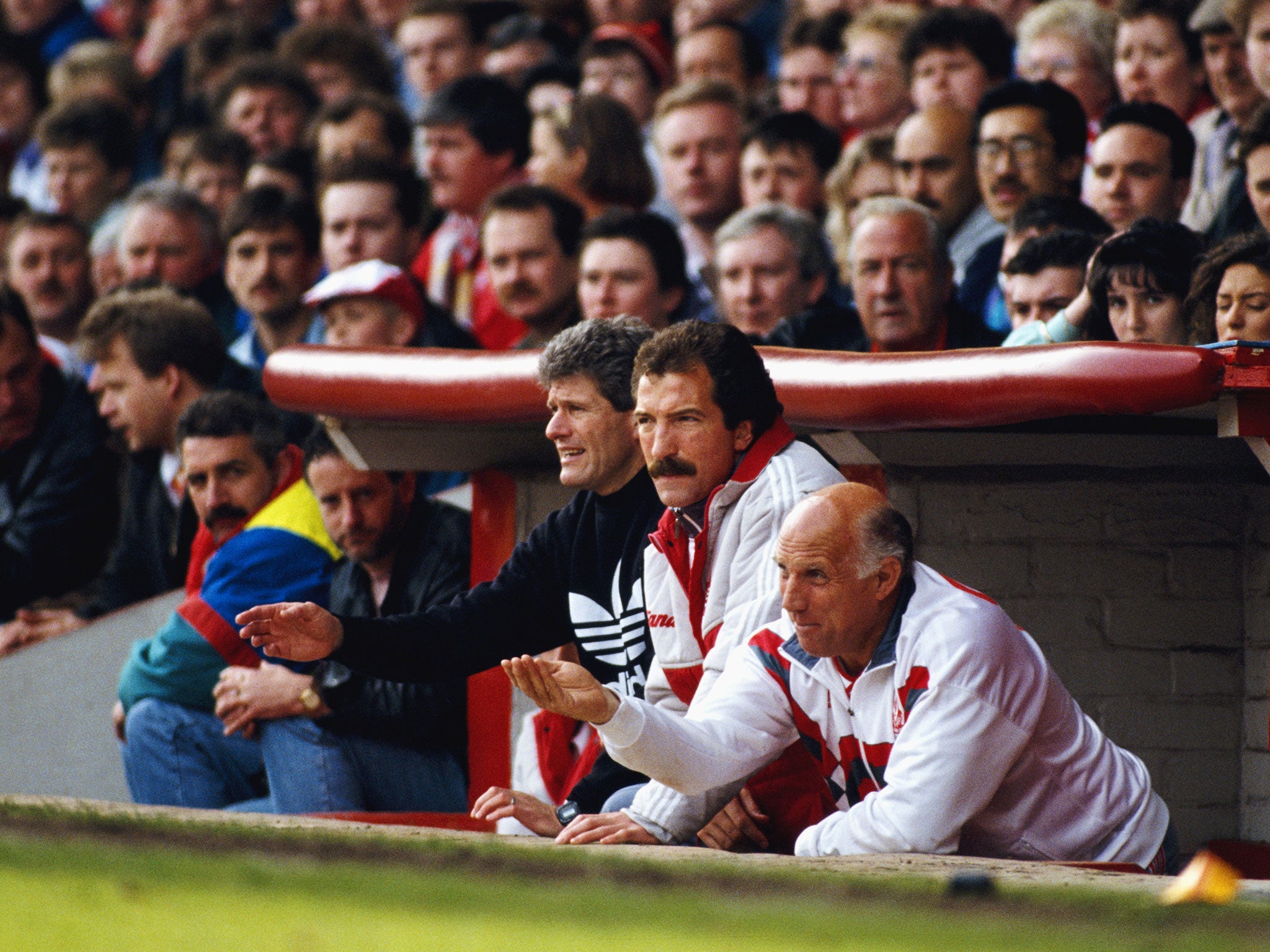
In 1966, after 379 games for Liverpool, Moran joined the coaching staff and continued playing in Fagan’s reserve team for a further two years, helping the club’s younger players. He admitted that he was “sometimes harsh” on his subjects.
“I enjoyed it. I was a tough player and reacted well to discipline. I was on the staff for a reason. Everybody was different, and I brought the discipline. Players need to be kept on their toes. In my first few years as a player, Liverpool were relegated. A few years before that, the club was top of the league and won the championship. If you settle and think everything’s OK, you can get into trouble. Even during my playing days, I’d do extra training on the field near where I lived after getting home from Melwood. It used to drive the wife mad, but it was what I had to do. I’d try to be different from the fly-by-nights that came in and didn’t do the extra work. When I was the coach, I asked for the same of the lads.
“It didn’t bother me who they were; how much they’d won. If they weren’t trying as they should be, I’d let them know. There was one player – I won’t tell you his name – but he was an international defender and he was making dangerous passes out of defence. It was putting us under pressure. I told him in no uncertain terms that he needed to learn how to get rid at certain times. We wanted the team to keep the possession but not if it meant conceding a goal. I shouted at the lad for weeks until he stopped doing it.
“I’d bump into a lot of players that moved elsewhere and they’d come up to me and say, ‘Ronnie, you were a b***ard to us. I wish I’d listened because I’m getting chased out of my [current] club for not working hard enough.’ There was a lot like that, even from Bill’s day.”
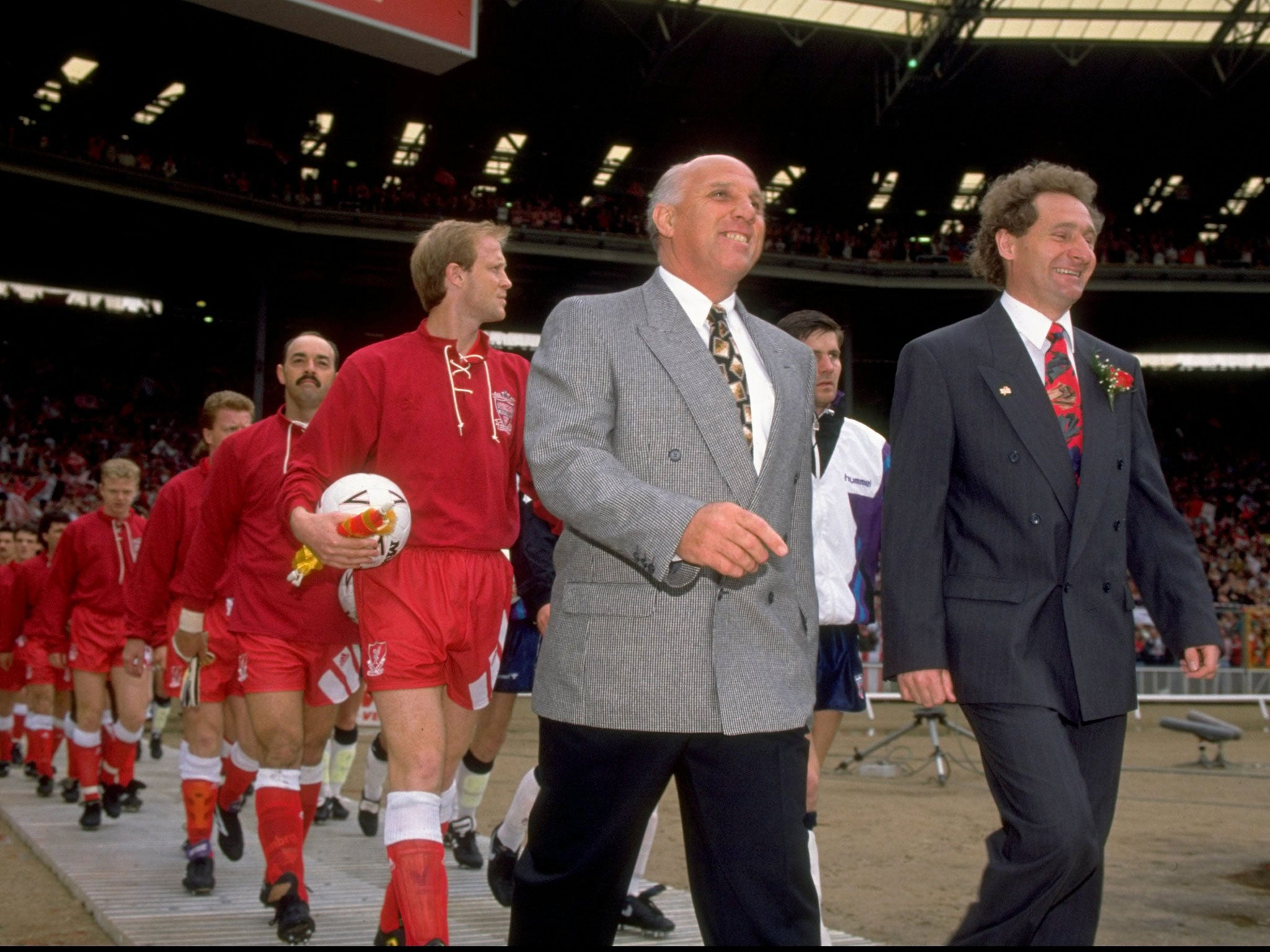
Moran’s direct approach extended to matches. Afterwards, he would entertain opposing coaches and managers in the Boot Room in a beguiling manner, attempting to accrue information about their teams for future reference. But during games, Moran’s voice was heard louder than anyone else in the dugout. If there was a problem, he would attempt to “sort it”. “You couldn’t do it now, because there are so many cameras around Anfield,” he said. “Every argument would be picked up on. But back then, there was a lot of activity between both benches. It’s funny now when I hear people talk about ‘mind games’, because we were the first to do that. There was nothing malicious about it, but you’d try to get whatever edge you could over the opposition. That stretched to the bench too. I remember arguing many times with Alex Ferguson when he became manager of United in the ’80s. I like Fergie because he’s a football man and there needs to be more of them. But when he first started at United, we’d be bickering all the way through games. It must have been the Celtic blood in us. We were two benches made up of Scots, Irish and Welshmen. There was bound to be a bit of conflict. Fergie gave as good as he got. All I can say is, I didn’t teach him any swear words.”
Moran speaks about Ferguson with reverence. Despite the enduring enmity between Liverpool and the club that Ferguson represented, he continuously emphasised the idea that United have scaled the heights by following similar principles to those once held at Liverpool. When Ferguson decided to retire, he was in his third decade of success at Old Trafford.
“You don’t have to be a genius to realise that if you repeat something, you get better at it,” Moran continued. “We’d tell the players to try to pass to the nearest red shirt in space. If that didn’t happen, it was the nearest red shirt even if he was marked. And if that wasn’t possible, look for something else. This wasn’t rocket science. Over the years, the lads got to know the drill. And because there were five or six of us on the staff that thought the same way, when Bill retired it passed to Bob and the same from Bob to Joe and Joe to Kenny. Not much would change. It made it easier for the staff and easier for the players.”
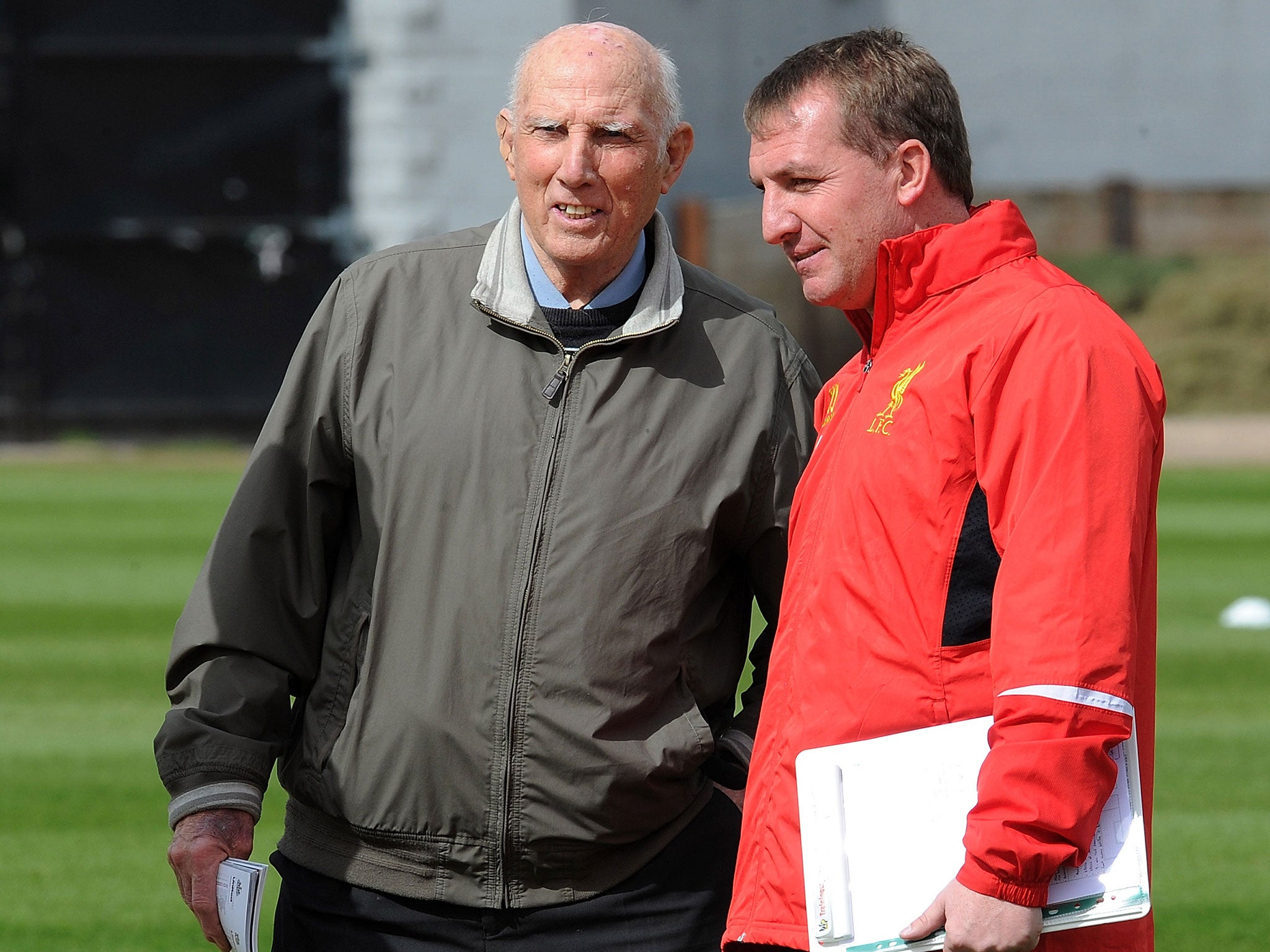
There was a commonly held belief about the style of football Liverpool should try to execute. But there was no dogma. Liverpool could adapt accordingly when they needed to. That’s why they were considered the most streetwise team in Europe. “With football, it’s all about getting the balance right between the team and the individual. You need to have a team where the individual can express himself. You need the clever ones, the ones with it up there. But you also need the ones that will do all the donkey work.”
Fundamentally, though, one character trait linked all of Liverpool’s players. “They mustn’t like losing,” Moran reiterated. “You can’t have someone that comes up with excuses like injuries, either. I’d tell them to go somewhere else. After that, you had to love playing. I knew a few – even back then – that didn’t give a b***ocks what was going on. They didn’t last long. You had to really care, like anything in life. If you care, you try harder and do better.”
Moran left Liverpool in 1998 following 46 consecutive years with the club. He would spend Tuesdays and Fridays in retirement at Melwood, walking around the perimeter of the training pitch for his morning constitutional, initially at the invitation of former player and assistant manager Sammy Lee. “I’d never look at what was going on,” he said. “It wouldn’t be right, nosing into someone else’s business.”
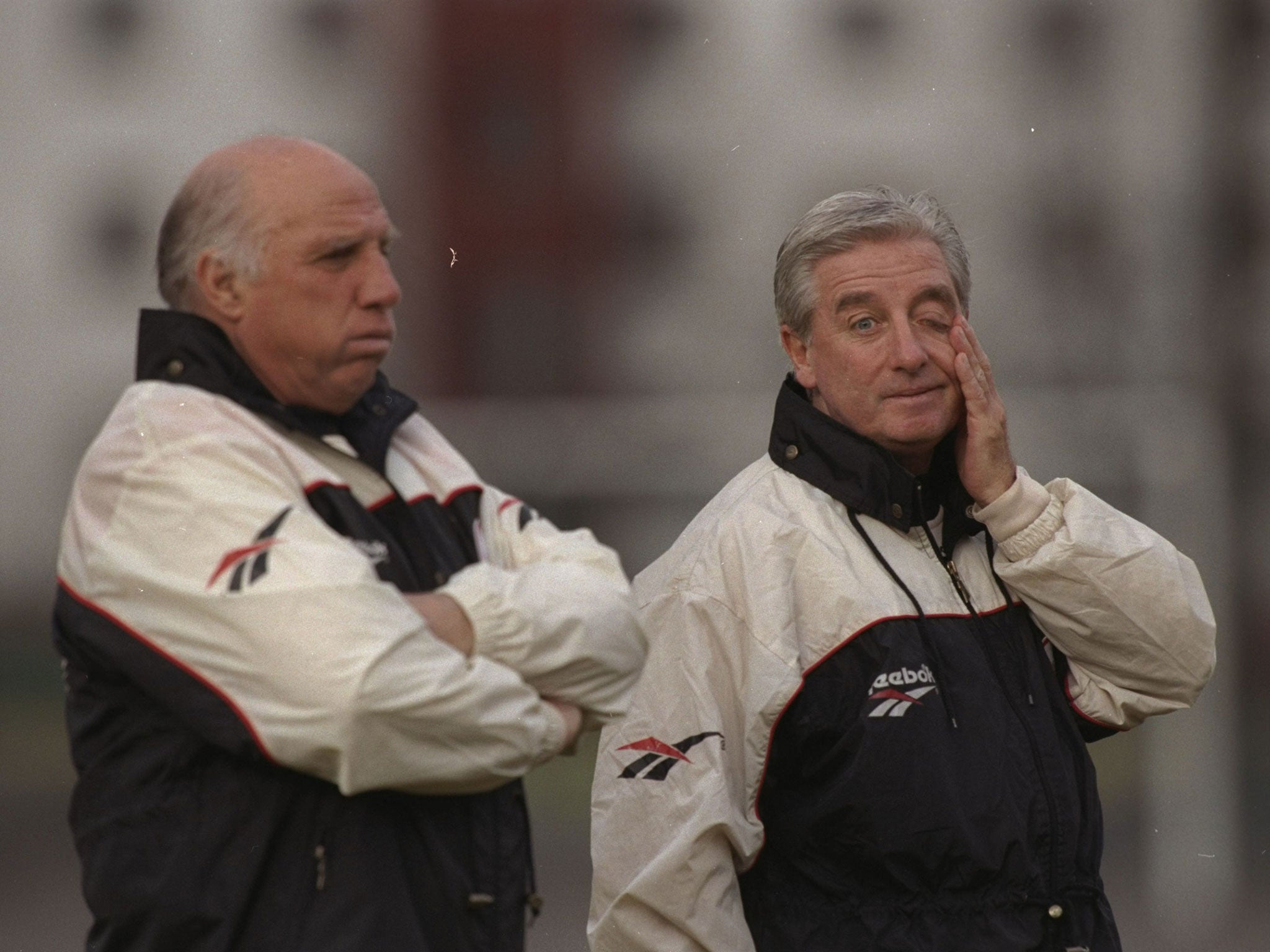
With that, it really dawned how privacy was arguably Liverpool’s greatest strength. Moran has a knack of telling you something interesting but not the interesting thing you really want to know. At his age, the mind searched for an answer that sometimes it could not offer. Yet I am also convinced that this is a tactic indoctrinated into him – not to reveal too much. At the end of our chat, when I’ve stopped making notes, he placed his hand on my shoulder and said with an emphasis, “I haven’t let too much slip there, have I?”
In keeping with Boot Room traditions, Moran never sought the limelight and never promoted himself above his colleagues or the team. It was the Liverpool way to deal with any problems internally. “We were no different to Manchester United,” he said. “You see Fergie – he doesn’t let many leaks out, does he?” Like those that supposedly protected the Ark of the Covenant, Moran would take many of Liverpool’s most intimate secrets to his place of rest. But I left him believing that perhaps it was Liverpool’s simplicity that outsiders found most complex.
“Them lot there,” he said, pointing again at the photograph from the beginning of our meeting. “They didn’t want to lose. That’s what football boils down to.”
Join our commenting forum
Join thought-provoking conversations, follow other Independent readers and see their replies
Comments